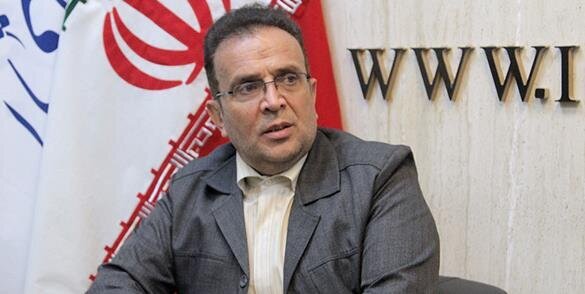Outcome of previous Vienna talks must be determined, MP says

TEHRAN - Mahmoud Abbaszadeh Meshkini, the spokesman of the National Security and Foreign Policy Committee of the Iranian Parliament (Majlis), says first the result of the previous rounds of the Vienna talks should be determined and then new negotiations should begin.
Iranian Foreign Minister Hossein Amir Abdollahian in his remarks on September 14 said while the Raisi administration is naturally in the process of consultations on how to continue the Vienna talks, it has reiterated that it will welcome negotiations that have tangible results and secure the rights and interests of the Iranian people.
Abdollahian said on September 7 that Iran seeks “wise and solid negotiations” for reviving the 2015 nuclear deal, officially known as the Joint Comprehensive Plan of Action (JCPOA).
Iran welcomes negotiations that guarantee the rights and interests of the Iranian nation, Abdollahian added
“We believe in wise and solid negotiations that secure rights of the nation and will actively take measures towards that goal,” Abdollahian said in a meeting with heads of foreign diplomatic missions in Tehran.
The chief diplomat added Iran negotiations that only waste time would not be beneficial.
Talking to the Mehr news agency published on Sunday, Abbaszadeh Meshkini said that the Westerners are to blame for the failure of the nuclear talks.
"If the nuclear talks reach a stalemate, it is the fault of the Westerners, because we negotiated with them and signed the JCPOA agreement, but they did not fulfill the obligations they had signed."
He noted: "The Western member states of the JCPOA acted contrary to the provisions of this agreement and not only did not lift the sanctions, but also tightened sanctions."
Due to sanctions, including financial ones, Iran was not able to import medicine and medical supplies in the midst of the Coronavirus pandemic. The cruel sanctions prompted former Iranian foreign minister Javad Zarif to say “the world can no longer be silent as U.S. Economic Terrorism is supplanted by its Medical Terrorism."
Under the JCPOA, Iran agreed to put limits its nuclear activities in exchange for termination of economic and financial sanctions.
The spokesman has said that the JCPOA is an agreement under which Iran scaled back and suspended a number of its nuclear activities, accepted monitoring of its nuclear sites beyond the safeguard agreement so that Westerners lift sanctions on Iran in return.
"We fulfilled all our obligations, but they did not fulfill and unilaterally withdrew from the JCPOA, and naturally they must return to this agreement and implement their obligations so that we can fulfill all our obligations in the deal," Abbaszadeh Meshkini stated.
One year after the U.S. quit the nuclear deal and returned sanctions, Iran announced that its “strategic patience” is over and started to gradually remove bans on its nuclear program.
The U.S. under Donald Trump abandoned the multilateral nuclear agreement in May 2018 and Iran started compensatory measures in May 2019. Even at the time Iran announced if the remaining members of the JCPOA, particularly the European sides, compensate Iran for the U.S. sanctions it will reverse its decision. However, the Europeans did nothing and the Trump administration under its “maximum pressure” campaign against Iran added new sanctions to the extent that it declared a total ban on Iran’s oil export.
Abbaszadeh Meshkini say there is no reason for Iran to unilaterally fulfill commitments under the JCPOA.
"When Westerners are not living up to their obligations, we do not have to act unilaterally on all of our commitments in the JCPOA."
In December 2020 the Iranian parliament approved a legislation obliging the Atomic Energy Organization of Iran to accelerate nuclear activities unless the sanctions are removed.
The parliamentary spokesman said by passing such a law the parliament did not allow the one-way road of the JCPOA to continue.
Abbaszadeh Meshkini emphasized that now the ball is in the West's court.
On the other hand, he stated, the Islamic Republic’s demand is “quite clear” according to which the West must honor its obligations in lifting sanctions on Iran.
"If they respond to the transparent, logical and unambiguous requests of the Islamic Republic of Iran, we have no problem in continuing the negotiations and it is important that the interests of the Islamic Republic of Iran are taken into account," the MP reiterated.
Negotiations for reviving the JCPOA began in April in Vienna. Six rounds of talks were held until June. The talks were intended to bring the U.S., as the violator of the deal, back into compliance.
Though significant progress were made, the U.S. side, which was participating in the talks indirectly, raised new issues which were not related to the JCPOA. The raising of new issues, including Iran’s defensive missile program, led the negotiators to fail to restore the agreement.
Since June 20 no talks have been held between Iran, the other remaining parties to the JCPOA – Britain, France, Germany, Russia and China – and the United States. The talks were suspended until the new government in Iran starts its work.
Leave a Comment